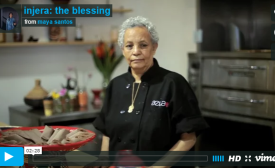gastrodiplomacy
Good food is the way to winning people’s heart. And Italians are masters at winning hearts with their globally popular cuisine so much so that the authorities in Italy believe food can also be a powerful tool for diplomacy. Organising an Italian Cuisine Week in around 120 countries including Doha simultaneously, the Italian authorities aim to lighten up people’s mood with good food.
More and more, a country’s diplomacy focus has shifted to promoting its cultural aspects — food, fashion, songs and dances — abroad. These are offered as an important part of its cultural diplomacy, which is not only internally generated, but is more impactful.
According to the United Nations, 6.6 million people have been displaced by Syria's civil war. They have found refuge across the globe, facing economic hardship, language barriers, social and cultural acclimation. Despite their challenges, Syrians find hope and solace in their traditional food culture as a source of normalcy, stability, and hope in bridging cultural divides.
Working in St. Petersburg, Russia with Native American ancestral foods from the Southwest was an opportunity to bridge a cultural gap. When we serve these foods to others, including chefs, diplomatic leaders, business professionals, culinary students, school children and educators, it helps to build stronger bonds between countries and offers an important setting to further vital diplomatic work.
South Africans and embassy officials on Saturday braved the scorching sun to partake in the Diplomatic Fair at the Union Buildings. The fair, the brainchild of the Department of International Relations and Cooperation, has been held annually in October since 2006 and serves as a key platform to educate the public about diplomacy.
She tells it every time she runs a cooking class for Free to Feed, a social enterprise that runs classes taught exclusively by asylum seekers and refugees. Founded by community worker Loretta Bolotin and her husband Daniel Bolotin earlier this year, Free to Feed aims to create a cultural exchange between asylum seekers and the general public through conversation, learning and food.
A cultural exchange show promoting the beauty of Vietnam’s land and people took place at the Vietnamese Embassy in Japan on the evening of October 8, drawing great public attention. The event featured performances of Vietnamese traditional dances and songs sung in Japanese. Hoang Thi Minh Ha, the wife of the Vietnamese Ambassador to Japan, introduced the cuisine of her home country.

Bringing Ethiopian food and traditions to the tables of South Los Angeles.







